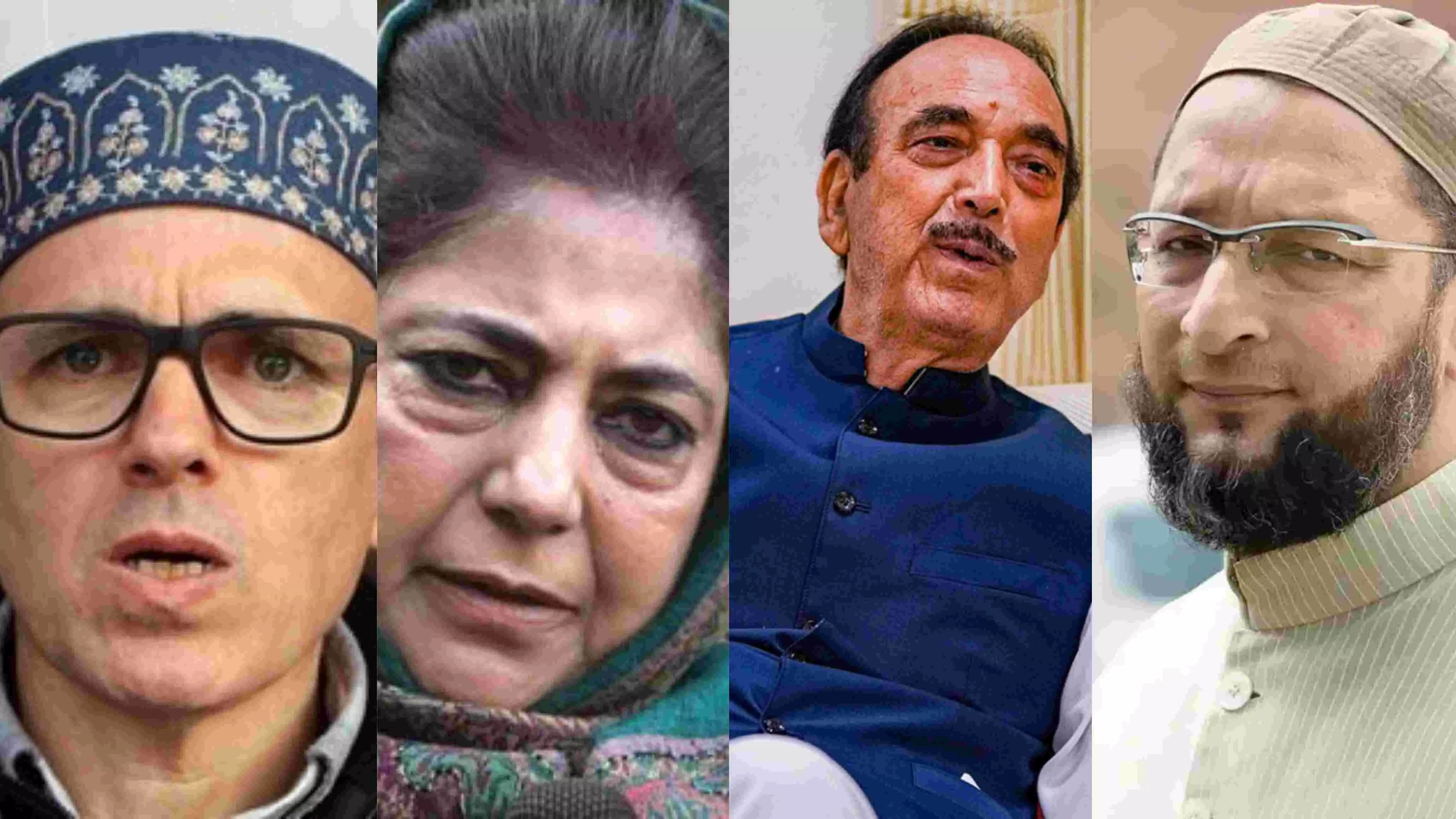Asaduddin Owaisi to Omar Abdullah: What leaders said about SC’s verdict on Article 370
The Supreme Court on Monday unanimously upheld the Centre’s August 5, 2019 decision to abrogate provisions of Article 370
By Kaniza Garari
Hyderabad: Reacting to the Supreme Court’s order on Article 370 of the Constitution, (AIMIM) president Asaduddin Owaisi said that the biggest losers are the Dogras of Jammu and Buddhists of Ladakh who will face a demographic change.
The Supreme Court on Monday unanimously upheld the Centre’s August 5, 2019 decision to abrogate provisions of Article 370, while directing the restoration of statehood for Jammu and Kashmir at the earliest. It also asked the Election Commission of India (ECI) to conduct elections in the state on September 30, 2024.
“We have held that Article 370 is a temporary provision on a reading of the historical context in which it was included,” said the CJI, who wrote the judgement for himself and Justices BR Gavai and Surya Kant.
“Why is there no timeline for the reinstatement of statehood? It’s already been five years of Delhi rule in J&K. Assembly elections should be held in the state at the earliest, along with Lok Sabha elections in 2024,” the All India Majlis-E-Ittehadul-Muslimeen chief said.
Order on Jammu and Kashmir
Asaduddin Owaisi said, “In 2019, the CJI (Chief Justice of India) spoke at a seminar and said that ‘public deliberation will always be a threat to those who achieved power in its absence.’ The question is whether you can abrogate the special status of a state by putting the whole state under curfew, while it is subject to Article 356, and without an elected Legislative Assembly in place. Who in Kashmir had the right to deliberate on August 5?”
He further added, “Let us be clear that, in Bommai judgement, the SC had said that federalism is part of the basic structure of the constitution. Federalism means that the state has its voice and in its area of competence, it has complete freedom to operate. How is it that Parliament can speak in place of the Assembly? How is it that Parliament can pass a resolution that was to be passed by the Assembly in the Constitution? For me, how 370 was abrogated was a violation of constitutional morality. Even worse, the abrogation, bifurcation and downgrading of the state to Union Territory is a grand betrayal of the solemn promise that the Union of India had made to the people of Kashmir.”
Legitimisation, a threat to other cities
Asaduddin Owaisi alleges that the Union government is not going to stop at this. “The Union government is going to make Chennai, Kolkata, Hyderabad or Mumbai a Union Territory. Look at Ladakh, it is being ruled by Lt. Governor with no democratic representation at all,” he said.
Kashmir leaders react
Leaders in Kashmir expressed their disappointment with the judgement of the Supreme Court.
National Conference vice president Omar Abdullah said he is disappointed but not disheartened by the Supreme Court verdict upholding the Centre’s August 5, 2019 decision to abrogate Article 370, which bestowed special status to the erstwhile state of Jammu and Kashmir.
The former Jammu and Kashmir chief minister said it took the BJP decades to abrogate the provisions of Article 370.
“We are also prepared for the long haul,” he said in a post on X. “Disappointed but struggle will continue,” he said.
Mehbooba Mufti of the People’s Democratic Party (PDP) said, “People of J&K are not going to give up, our fight for honour and dignity will continue. Not end of the road.”
Democratic Progressive Azad Party (DPAP) chairperson Ghulam Nabi Azad said, “Sad and unfortunate but we have to accept it.”
The petitions challenging the abrogation of the provisions of Article 370 and the validity of the Jammu and Kashmir Reorganisation Act, 2019 that divided the erstwhile state into the Union territories of Jammu and Kashmir and Ladakh were referred to the Constitution bench in 2019.